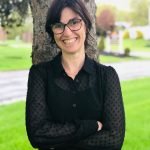The Bankruptcy of the Category of Religion: A Decolonizing Approach
Abstract
This article takes as its point of departure the 2022 Interim Report of the United Nations Special Rapporteur on Freedom of Religion or Belief, entitled “Indigenous Peoples and the Right to Freedom of Religion or Belief.” The report recommends “collaborat[ing] with indigenous spiritual leaders and influencers to support conservation efforts and the sustainable development of traditional lands through a human rights-based approach.” We ask what a human-rights-based approach to the conservation and sustainable development of traditional Indigenous lands looks like. More specifically, would such an approach be in line with the worldviews of the Indigenous peoples potentially affected by such conservation or development? We consider these questions both legally and theologically. We acknowledge that the protection of human rights is better than their violation, but we also take seriously critiques of this standard human rights discourse. We argue that case studies such as Oak Flat, Lake Titicaca, and the Klamath River call us away from abstract affirmations of the human right to religious freedom and toward a rights-of-nature framework – even as we consider critiques of this framework as well. Ultimately, both Western legal discourse and Western religious studies discourse reduce Indigenous cosmologies (which are metaphysical systems) into cultural debates, thus erasing the sovereignty of Indigenous lands and peoples. A decolonizing approach therefore requires a rethinking of the sacred.
Author Biographies
Cecilia Titizano, Santa Clara University
Maria Cecilia Titizano La Fuente earned an MS in International and Agricultural Development from UC-Davis and an M.T.S. in Theological Studies from the Franciscan School of Theology. A native of Bolivia, Titizano recently completed her Ph.D. in Systematic and Philosophical Theology from Graduate Theological Union. Her transdisciplinary research focuses on indigenous philosophies and spiritualities, feminist epistemology, and decoloniality. Currently, she is working on indigenous feminist theologies and decolonial intercultural hermeneutics. Titizano is a constructive comparative theologian. She specializes in Indigenous thought and Christian theology with an emphasis on Trinitarian pneumatology, feminist and liberationist theologies. She currently serves as a Board Member for Memoria Indígena, a Latin American organization dedicated to “recognize and remember indigenous Christians’ memories in Abya Yala,” and is member of the Comunidad de Teólogas Indígenas del Abya Yala.
Dana Lloyd, Villanova University
Dana Lloyd, PhD, joined Villanova University as assistant professor of Global Interdisciplinary Studies in fall 2021. A scholar of law, religion, and indigeneity, she has an article, “Storytelling and the High Country: Reading Lyng v. Northwest Indian Cemetery Protective Association,” in the forthcoming issue of Journal of Law and Religion, as well as an article “Law, Religion, and Paradoxes of Sovereignty,” which serves as an introduction to a symposium she guest-edited, in the forthcoming issue of Political Theology. She also has two chapters in the forthcoming edited volume Indigenous Religious Traditions in Five Minutes (Equinix, 2022): “Is Indigenous Law Religious?” and “What is a Land-Based Religious Tradition?”
Her recent public scholarship includes “Native American Religious Freedom After Trump,” “Rights of Indigenous Peoples and the Nonhuman Environment” and “The Coloniality of Wilderness.” She is the curator of a forthcoming symposium on Kathleen Sands’ America’s Religious Wars.
SUGGESTED CITATION
Dana Lloyd, "The Bankruptcy of the Category of Religion: A Decolonizing Approach," Doctrine of Discovery Project (6 March 2025), https://doctrineofdiscovery.org/blog/jcreor/link/jcreor-bankruptcy/.
Download citation formats:
Share on
X Facebook LinkedIn BlueskyDonate today!
Open Access educational resources cost money to produce. Please join the growing number of people supporting The Doctrine of Discovery so we can sustain this work. Please give today.

